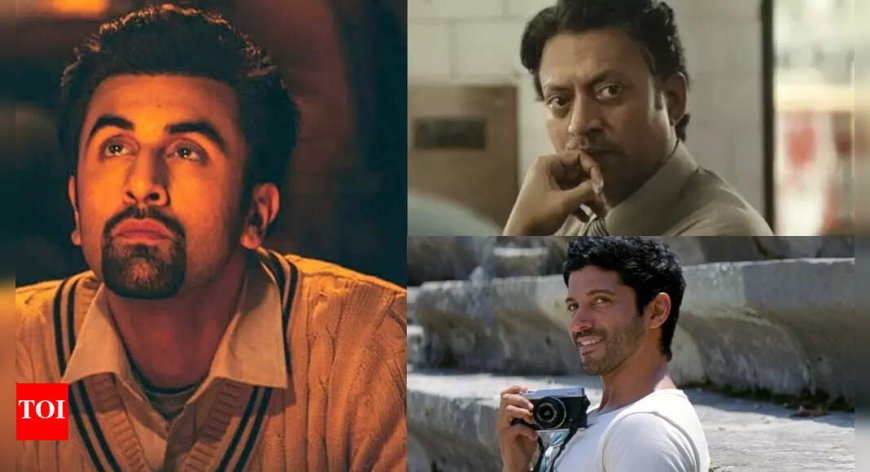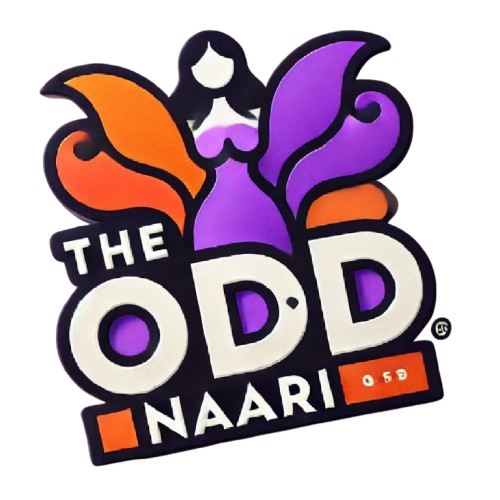Redefining masculinity in Bollywood: Acknowledging the subtle shift to empathetic male protagonists - the characters who listen, feel, react
Bollywood's portrayal of masculinity is evolving, moving away from the traditional angry young man to characters who embrace empathy and emotional vulnerability. This shift reflects a broader cultural change, with audiences appreciating male protagonists who challenge stereotypical norms.

Redefining Masculinity in Bollywood: Acknowledging the Subtle Shift to Empathetic Male Protagonists
Breaking News, Daily Updates & Exclusive Stories - theoddnaari
In recent years, Bollywood has witnessed a remarkable transformation in its portrayal of masculinity. Gone are the days when the quintessential angry young man dominated the silver screen. The evolution towards more empathetic male protagonists marks not just a significant change in storytelling, but also a reflection of our broader society's evolving values. This shift invites us to explore the emerging characters who listen, feel, and react, challenging the stereotypical norms that have long defined masculinity in Indian cinema.
The Changing Face of Masculinity
Bollywood's traditional narratives often portrayed male characters as aggressive and emotionally stunted, adhering to the rigid definitions of masculinity. However, the new wave of films is embracing characters who are emotionally intelligent and in tune with their feelings. Films like "Kabir Singh" and "Chhichhore" have introduced audiences to men who express vulnerability and seek deeper connections with others, signaling a much-needed departure from traditional masculinity.
This cultural shift reflects an increasing appreciation among viewers for more nuanced portrayals of male protagonists. As audiences become more aware of mental health issues and emotional well-being, the demand for stories featuring empathetic characters continues to rise. The industry's response has been to craft narratives that prioritize sensitivity, communication, and personal growth over machismo and aggression.
Character Development: The Heart of the Change
Key films have been instrumental in this shift. For instance, in the film "Panga," the male lead's support for his wife's career aspirations showcases a partnership that values mutual respect and understanding. Similarly, in "Andhadhun," the protagonist navigates complex emotional landscapes, which adds depth to his character. These portrayals resonate with audiences, creating a sense of relatability that was once absent.
The focus on empathetic male protagonists also addresses issues such as toxic masculinity and mental health, encouraging a generation of men to embrace their emotions rather than suppress them. This newfound openness is vital for fostering healthier relationships and promoting emotional intelligence across the board.
Impacts of Societal Expectations
The portrayal of masculinity in Bollywood does not exist in a vacuum; it is intrinsically linked to societal expectations and cultural dialogues. As young people consume cinema, they internalize these messages, contributing to a gradual but significant cultural transformation. The acceptance of male vulnerability is not merely a trend but a reflection of shifting values where empathy is increasingly seen as a strength rather than a weakness.
More importantly, this evolution aligns with the global discourse on gender and equality, where the need for collaborative narratives drives filmmakers to create complex characters that resonate beyond traditional gender roles. Such narratives have the potential to change mindsets and encourage men to take on roles that advocate for equality and empathy.
Conclusion: A Long-Lasting Impact
The subtle shift towards empathetic male protagonists in Bollywood is a promising development that highlights the industry's ability to reflect societal changes. As viewers continue to gravitate toward characters who listen, feel, and react, filmmakers are given the freedom to explore new stories that celebrate emotional depth and vulnerability. This transition not only enriches the cinematic landscape but promotes a more empathetic culture that goes beyond the silver screen.
In a world that often promotes rugged masculinity, this new wave of Bollywood storytelling represents a significant leap towards understanding and embracing the complexity of being human. As these narratives flourish, they have the potential to shape a generation that values emotionality, empathy, and the power of human connection.
For more updates, visit theoddnaari.com.
Article by Aditi Sharma, Nisha Patel, and Riya Kapoor







